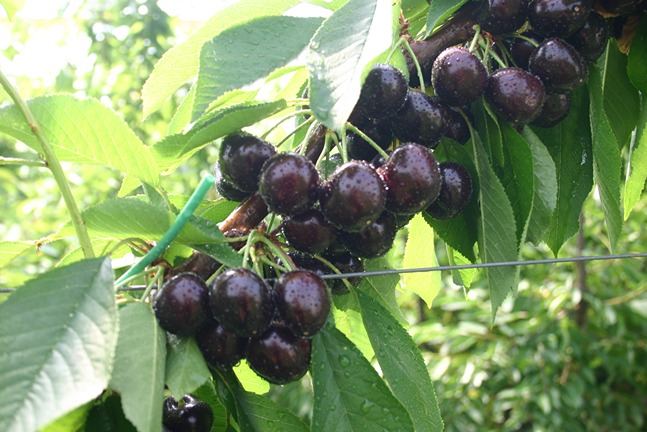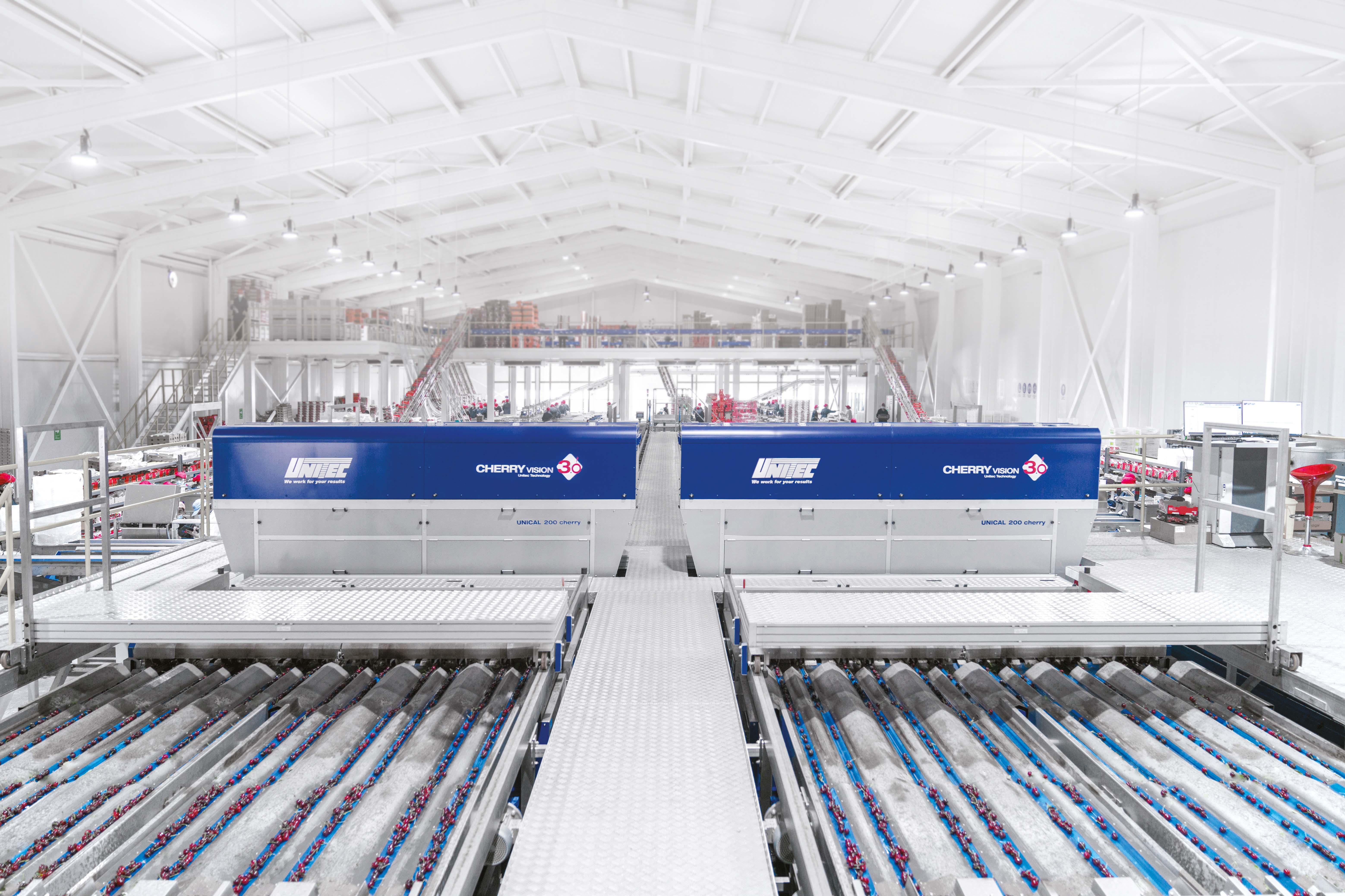Water deficit is one of the most serious effects of climate change, negatively affecting product quality and yield. Consequently, deficit irrigation and phytohormones, including abscisic acid and methyl jasmonate, have been evaluated as a possible agronomic strategy to address water deficits, thereby improving fruit quality and yield.
However, the effects of salicylic acid applications on both yield and quality and post-harvest storage in cherry trees are not yet known. Salicylic acid is a signal molecule involved in plant responses to environmental stresses. It was reported that salicylic acid applications had a favourable impact on fruit quality and prolonged postharvest storage of blueberries, figs and goji berries.
In order to evaluate the impact of salicylic acid application under deficit irrigation conditions on cherry quality, the study was conducted with the hypothesis that the application of this phytohormone improves the production performance and post-harvest fruit life of these trees.
The results of this study have the potential to improve the development of more efficient post-harvest storage methods for cherries. This study was a collaboration between the Catholic University of Temuco (Chile), the University of La Frontera (Chile) and the Federal University of Viçosa (Brazil) and evaluated the impact of salicylic acid application on fruit quality, yield and post-harvest storage of cherry trees subjected to deficit irrigation.
The experiment was conducted in a 6-year-old cherry orchard cv. Lapins subjected to two water treatments: irrigation at 100% of the crop's evapotranspiration and irrigation at 60% from the second fruiting stage to harvest. Both water treatments were treated with a single 0.5 mM salicylic acid treatment at fruit veraison.

At harvest, fruits were picked to assess fruit quality, yield and quality during post-harvest storage (0, 10, 20 and 30 days). Fruits from plants under deficit irrigation showed a decrease in fruit yield (11%), fruit weight (8%) and fruit size (6%), as well as an increase in pulp firmness (7%) and total soluble solids (5%) compared to 100% irrigated plants.
The research showed that the administration of salicylic acid significantly improved the sugar content of the fruit of plants subjected to deficit irrigation at harvest, recovering fruit yield (9%), fruit weight (5%) and size (4%). Interestingly, the application of salicylic acid also significantly reduced fruit cracking (78% in 100% irrigation and 82% in 60% irrigation).
At day 30 of post-harvest storage, fruit weight of all treatments was reduced, with the main reduction occurring in the plants of both treatments, by 14% and 13% respectively. Interestingly, fruit weight did not change during post-harvest storage when treated with salicylic acid. No significant differences in sugar content during post-harvest storage were observed in any of the field treatments.
The present investigation confirmed that salicylic acid applications improved yield and fruit quality parameters, such as fruit weight, size and firmness, in sweet cherry plants subjected to deficit irrigation. Therefore, the application of salicylic acid could effectively mitigate the effects of reduced irrigation applications and preserve fruit quality during the post-harvest storage period.
Source: González-Villagra, J.; Chicahual, C.; Jorquera-Fontena, E.; Falquetto-Gomes, P.; Nunes-Nesi, A.; Reyes-Díaz, M. Salicylic Acid Improves Yield, Fruit Quality, and Post-Harvest Storage in Sweet Cherry (Prunus avium L.) cv. Lapins Subjected to Late-Deficit Irrigation. Horticulturae 2024, 10, 707. https://doi.org/10.3390/horticulturae10070707.
Image: SL Fruit Service
Melissa Venturi
University of Bologna (IT)
Cherry Times - All rights reserved











